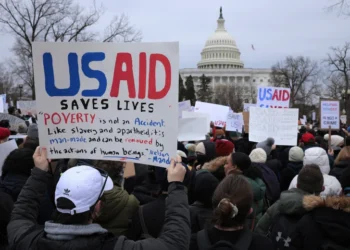The People’s Republic of China has eased some of its COVID restrictions even though case figures increase to their highest levels.
The announcement came even as a rise in COVID-19 cases prompted Beijing to close parks and enforce other restrictions. The country reported 10,729 new cases, and more than 5 million people were confined to their homes in the southern manufacturing hub of Guangzhou and the western megacity Chongqing.
Travelers arriving in China will now spend less time in quarantine to reduce havoc to the economy and society. Stress associated with lockdown and travel restrictions has plunged a lot of people into depression.
According to a notice from the State Council of China’s Cabinet, incoming passengers will only be quarantined for five days instead of the previous seven at a designated location, followed by three days of isolation at their place of residence.
The changes were publicized on Friday, November 11, 2022 amidst the country’s struggle with its worst wave of COVID in months. Presently, the cities of Beijing, Guangzhou and Zhengzhou are faced with high number of COVID cases.
This revised standard will also be applied to foreign business people and athletes, in what seem to be a gradual move toward normalization.
Airlines will no longer be threatened with a two-week long suspension of flights if five or more passengers tested positive, possibly providing significant expansion of seats on such flights that have declined in numbers and soared in price since restrictions were imposed in 2020. Those flying to China will only need to present a single negative test for the virus within 48 hours of traveling unlike previously where two tests within that time period were required.
China’s National Health Commission (NHC) made an assertion that the changes did not amount to “relaxing prevention and control, let alone opening up”, but were instead crafted to adapt to a changing COVID situation. The NHC further stated that, it would develop a plan to speed up vaccinations. Officials will also cease recording secondary contacts which means that numerous people will not have to quarantine.
Zero-COVID Policy
China’s zero-Covid policy has saved lives in the country of 1.4 billion people. “Zero-COVID” has kept China’s infection rate relatively low but produces a negative result on the economy and has disrupted life by shutting schools, factories and shops, or sealing neighborhoods without warning.
With the new spike in COVID cases, a growing number of areas are shutting down businesses and imposing restrain on movement. In order to enter office buildings, shopping malls and other public places, people must show a negative result from a virus test taken as often as once a day.
With the recent decline in economic growth, a number of the stringent measures are being revised to help the economy to thrive in the face of adversity.
However, despite this alteration, most restrictions still remain in place. President and ruling Communist Party leader, Xi Jinping, insisted on adhering to a strict zero-COVID strategy involving lockdowns even though the rest of the world has moved on.




















